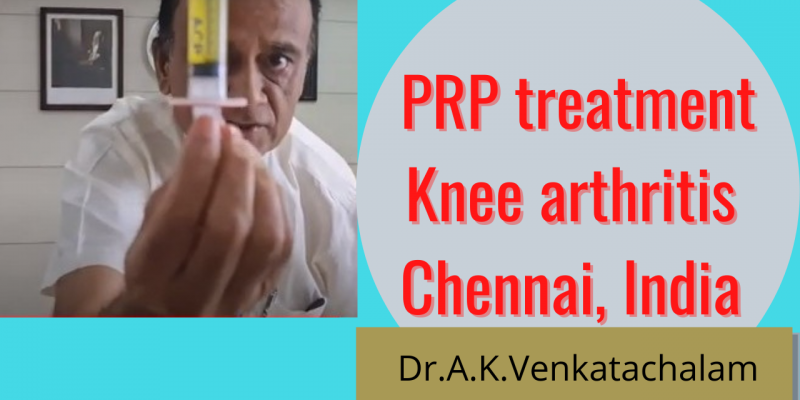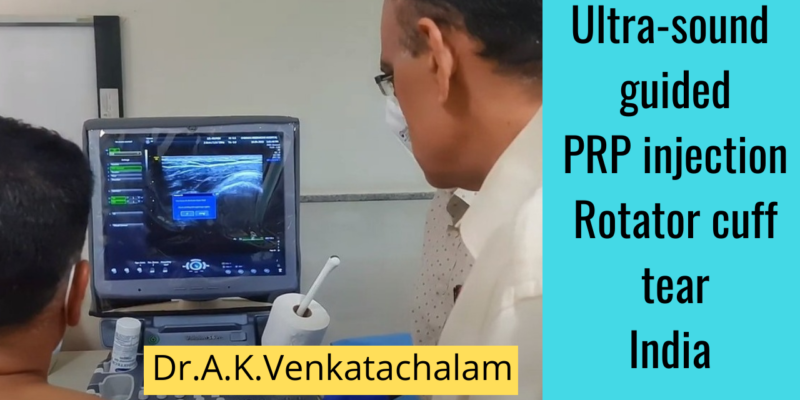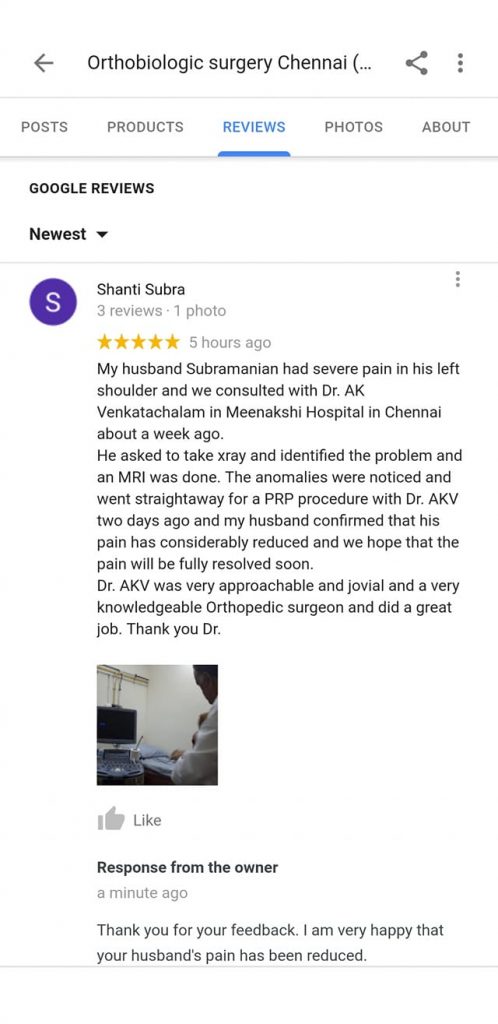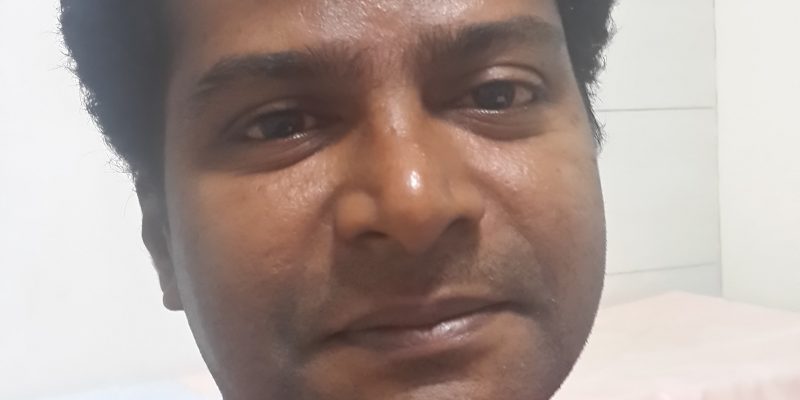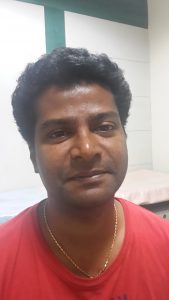Platelet-rich plasma (PRP) treatment Chennai.
What are platelets?
Platelets are a type of cell in the blood primarily responsible for clotting. In addition to their paramount clotting function, they can also perform tissue repair as they also contain chemicals known as growth factors inside one of the three types of granules inside them which support healing and recovery processes. Platelets have three types of granules inside them known as α–granules, dense granules, and lysosomes. These granules are released when platelets encounter external tissues. Platelets swell and burst and release their granules.
Platelet-rich Plasma (PRP) is a filtrate of plasma rich in platelets. It contains plasma which is the liquid portion of blood and one of the three types of blood cells called platelets. In PRP, plasma contains significantly more platelets than their baseline value in blood, so the concentration of growth factors can be five to 10 times higher.
How is Platelet-rich plasma prepared for injection?
To create platelet-rich plasma, doctors take a blood sample from the patient and place it into a device called a centrifuge that rapidly spins the sample, separating out the other components of the blood from the platelets and concentrating them within the plasma. See how PRP is prepared in this video.
What is the basis for the actions of platelets?
Platelets are known to provide a diverse array of growth factors that can work independently or with other proteins and cells to improve the healing process. Although the use of PRP in the dermatology and maxillofacial fields dates to more than 50 years, the study and application of this treatment in joint conditions is recent and growing. As mentioned before, the biological rationale for the clinical use of PRP includes the local action of growth factors, the modification of the inflammatory response, and the effects on cell proliferation and differentiation.
Which are the principal areas of the musculoskeletal tissue in which PRP is being used?
Intraarticular platelet-rich plasma (PRP) injection has emerged as a promising treatment for knee osteoarthritis. Studies to date, including multiple randomized controlled trials, have shown that PRP is a safe and effective treatment option for knee osteoarthritis. Intra-articular PRP is similar in efficacy to hyaluronic acid and seems to be more effective than hyaluronic acid in younger, active patients with low-grade osteoarthritis. Treatment benefits wane after 6-9 months Intraarticular platelet-rich plasma injection in the treatment of knee osteoarthritis: review and recommendations – PubMed (nih.gov)
In addition, they are used to heal tendon, fascia, and ligament degenerative conditions and tears. They are also used to initiate the repair of peripheral nerves like the ulnar and median nerves when these are enlarged and compressed in the elbow and palm as in cubital tunnel and carpal tunnel syndromes.
PRP is also used to accelerate ACL repairs and meniscal repairs in the knee. PRP can be combined with the Stromal vascular fraction to yield platelet-rich stroma (PRS). This is used to treat knee Osteoarthritis, avascular necrosis, and cartilage lesions.
See how PRP injection alleviated this gentleman’s knee pain-
Platelet-rich plasma (PRP) treatment for knee cartilage lesions and osteoarthritis Chennai.
Listen to how a young man benefited from a PRP injection to his shoulder in this video
See how effective PRP was for treating heel pain in this video
If you wish to make an appointment e mail me at drvenkat@kneeindia.com or call the hospital number at +91 44 42938938.

